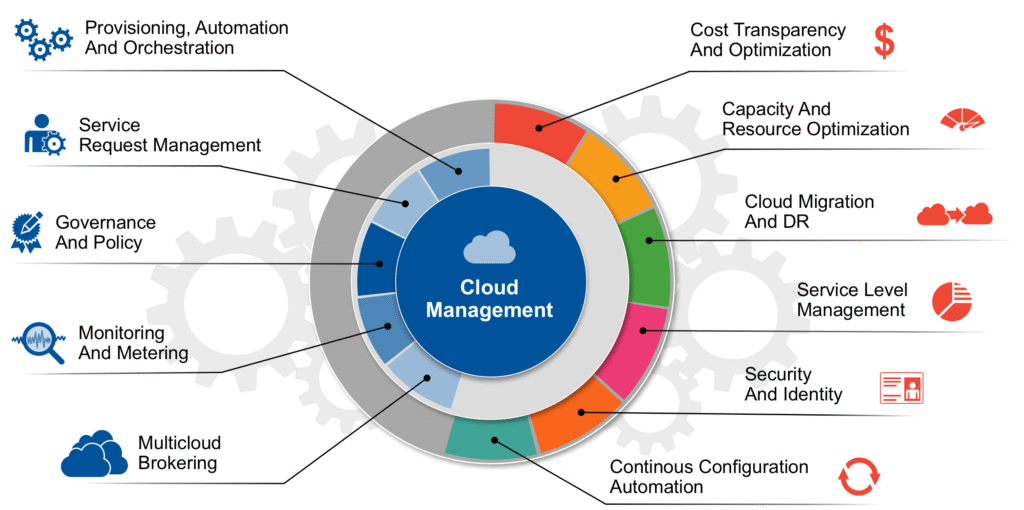Organizations are increasingly deploying enterprise applications to the cloud to reduce the high upfront investments they would otherwise have to make for on-site infrastructure. Cloud environments provide on-demand computing power and data storage that is consistent with the growing, demand for data and services. Through cloud service management, administrators oversee cloud activities ranging from resource deployment and utilization of resources, data integration, and disaster recovery.
Cloud management gives admins the ability to access the resources they need, automate those processes that they want to, and adjust as needed, while also monitoring usage and cost. It is also how admins maintain flexibility and scalability while being able to adapt quickly when things change.
Tanvisol provides comprehensive fulfillment for organizations that want to speed up application delivery, improve operational efficiency, and streamline service delivery and consumption across a broad set of new and traditional, private, and public cloud-based deployment platforms.


